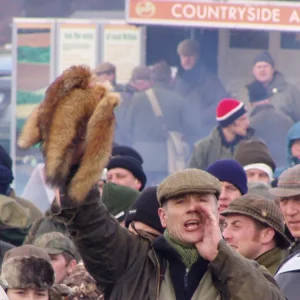A gamekeeper on one of England’s most celebrated country estates was ordered to pay fines and costs of almost £1,000 yesterday after admitting shooting and poisoning birds of prey.
A gamekeeper on one of England’s most celebrated country estates was ordered to pay fines and costs of almost £1,000 yesterday after admitting shooting and poisoning birds of prey.
Martin Joyce, a keeper on the Earl of Leicester’s estate at Holkham, Norfolk, shot two kestrels in a fit of rage when he saw them attacking young partridges. He poisoned another kestrel, magistrates at Fakenham were told.
The 3,000-acre estate at Wells-next-the-Sea was a model of agricultural improvement in the 19th century under the Earl’s ancestor, Thomas Coke.Yesterday the Earl’s heir, the present Viscount Coke, disowned Joyce’s actions, although he said the keeper would not be sacked.
Joyce was prosecuted after a walker found the poisoned kestrel dead next to a chick that had been laced with the pesticide Carbofuran. Police and the Royal Society for the Protection of Birds launched an investigation and found the two dead kestrels in a bucket in Joyce’s vehicle, and a “poisoner’s kit” of chemicals, needles, syringes and bowls in outbuildings at his cottage. Joyce, 36, married with two children, was fined a total of £850 and ordered to pay £100 costs.
After the case Viscount Coke said: “We were appalled by Martin Joyce’s actions when we found out what he had done. It was illegal, against the law of the land, and against the estate’s own rules. They were certainly actions the estate did not condone. This incident has tarnished the very good reputation we have as a model of good conservation practices.
“But Mr Joyce will be keeping his job. He has been punished with a heavy fine and we don’t see it is necessary to punish him a second time. He hadn’t put a foot wrong for four years and he is totally humbled by this experience.”
Viscount Coke, a director of the estate, also appeared in the dock yesterday with his estate manager and head keeper, all facing charges relating to permitting the improper use and storage of poisons. They pleaded not guilty and the case was adjourned until 2 May.
Kestrels are Britain’s commonest birds of prey – there are an estimated 50,000 pairs – but they are strictly protected.
Guy Shorrock, an RSPB investigations officer, said the illegal poisoning of birds of prey was still too common on many large estates. “We hope this case sends out a clear message to all landowners and gamekeepers, and by next year there will be tough new laws in place that will make offences like this punishable by imprisonment rather than a maximum fine of £5,000,” he said.
Source: http://www.independent.co.uk/environment/peers-gamekeeper-fined-for-killing-three-kestrels-721792.html



